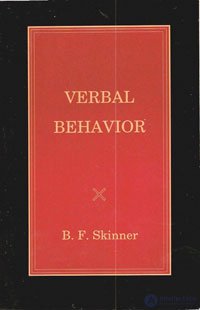Lecture

In 1957, B.F. Skinner published his book Verbal Behavior. It was a comprehensive, detailed report on the results of language studies conducted in the framework of the behavioral approach , which was written by the most prominent expert in this field.
But it is rather curious that the review of this book became no less famous than the book itself, and caused the almost complete disappearance of interest in behaviorism.
The author of this review was Noam Chomsky, who himself had just published a book outlining his own theory, Syntactic Structures. Chomsky showed that behaviorist theory does not allow understanding the origins of creative activity carried out with the help of language — it does not explain why a child is able to understand and put together sentences that he has never heard before.
Chomsky’s theory , based on syntactic models dating back to the works of the ancient Indian linguist Panini (approximately 350 BC), made it possible to explain this phenomenon, and, unlike previous theories, turned out to be sufficiently formal for it to be realized in form of programs.
Thus, modern linguistics and artificial intelligence, which were “born” at about the same time and continue to grow together, intersect in a hybrid field called computational linguistics or natural language processing.
It was soon discovered that the problem of understanding the language is much more complex than it seemed in 1957. Understanding a language requires an understanding of the subject and context of speech, and not just an analysis of the structure of sentences. This statement now seems obvious, but this fact itself was not widely recognized until the 1960s.
Most of the early work in the field of knowledge representation (the science of how to transform knowledge into a form that a computer can operate with) was tied to language and fed on linguistic research, which, in turn, was based on the results of a philosophical analysis of language, held for many decades.
Comments
To leave a comment
Connection with other sciences and cultural phenomena
Terms: Connection with other sciences and cultural phenomena